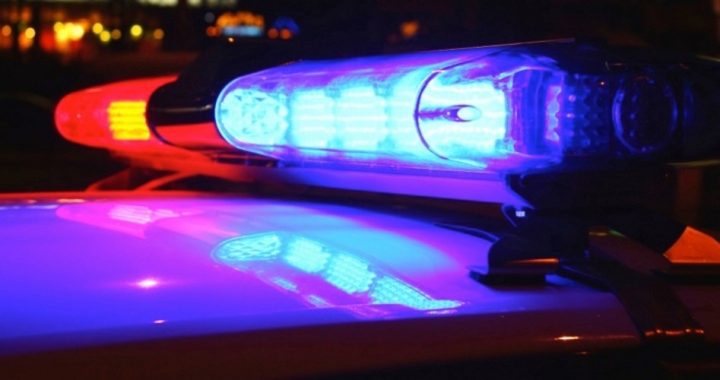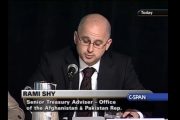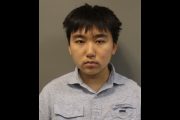
The Freddie Gray case has garnered national attention due to the claim that Baltimore police officers caused Gray’s death by their allegedly rough treatment of him while he was under their custody. The charge was that Gray received injuries during his transport to the station where he was booked on April 12, 2015 — injuries that he died from a week later.
Baltimore State’s Attorney Marilyn Mosby filed criminal charges against the six police officers involved in Gray’s arrest and transport after Black Lives Matter activists led a protest that led to riots in the city. Mosby said in announcing her filing of charges, “I heard your call for ‘No justice, no peace.’ Your peace is sincerely needed as I work to deliver justice on behalf of this young man [Freddie Gray].” She then added, in what appears to show prosecutorial bias, “Our time has come.”
After the medical examiner ruled that Gray’s death was a homicide, prosecutors alleged that the six officers disregarded their duty when they failed to secure Gray with a seat belt, and then failed to seek prompt medical attention when he was injured. Prosecutors contended that Officer Caesar Goodson drove the van recklessly, which caused Gray’s injuries. Goodson was acquited June 23 by Judge Barry Williams, who told prosecutors they had presented him with no evidence of any intentional “rough ride.”
Goodson was the third of the six officers the prosecution has failed to convict. He and fellow Officer Edward Nero were tried before a judge. (A defendant has the option of appearing before a judge or a jury.) Officer William Porter chose to be tried by a jury, which deadlocked. A fourth officer, Lt. Brian Rice, was slated to go on trial today.
Dawnyell Taylor, the lead police detective in the investigation into Gray’s death, was recalling how she was handed a summary of evidence, as provided by prosecutors, for her to read to the grand jury in the case. According to her case note logs, Deputy State’s Attorney Janice Bledsoe presented her with a four-page, typed narrative at the courthouse shortly before she was expected to appear before the grand jury. “As I read over the narrative it had several things that I found to be inconsistent with our investigation. I thought the statements in the narrative were misquoted,” Taylor said.
Taylor testified in the most recent trial with Officer Goodson that she turned her notes over to defense lawyers. When the defense lawyers complained that the prosecutors had not already provided them, prosecutors protested that they did not have the notes. But Taylor then testified that she offered to provide prosecutors with her notes, but that the prosecutors had no interest in them.
During her testimony to the grand jury, Taylor told the jurors that she was only reading the statement as provided by the prosecution, and it was not a summary of her own investigation.
Taylor believed the some portions of the narrative she was directed to read were misleading. Prosecutors interrupted Taylor’s response when grand jurors began to ask her questions, and instead gave their own answers. “It was at that time that I realized that she [the prosecutor] did not intend for me to answer any questions because all of my answers would obviously conflict with what I had just read to them.”
“It was clear that [Bledsoe] did not need to listen to any of the evidence as she had made up her mind to charge these officers,” Taylor wrote in her notes, recalling meetings with prosecutors. The day after prosecutors were given the police department’s preliminary investigative findings, Mosby announced charges against all six officers.
According to Taylor, the medical examiner’s office originally told police that Gray’s death was an accident, but the medical examiner took issue with that in court.
John Banzhaf, a law professor and legal activist, has filed a complaint with the Maryland Bar Counsel in an attempt to have State’s Attorney Mosby disbarred. Among the multiple grounds which he cited in support for his petition, he argued, “She did not have probable cause to support bringing a successful conviction in any of the cases.” He added, “She made public statements that prejudiced those cases.”
And now Detective Taylor’s charges seem to add more weight to Banzhaf’s effort. For instance, Banzhaf’s contention that Mosby “withheld evidence from the officers’ defense attorneys that would have helped their cases against her charges,” appears to be supported by Taylor.
Others are questioning Mosby’s methods: “I have never heard of the [state’s attorney’s office] providing an investigator with a prepared statement,” said a former Baltimore homicide detective, Joshua Ellsworth. Ellsworth is now an instructor at the department of criminal justice of Indiana University, and has no connection with the Gray case.
This is yet another illustration of the importance of the “Support Your Local Police” project, promoted by the John Birch Society. The second part of the project’s title is “and keep them independent!” While this “independence” is mainly addressing the issue of keeping the police independent of federal control, it is vitally important for the integrity of a criminal justice system that police investigators be independent of the prosecutor’s office, as well — and vice versa. Each should provide a check on the power of the other.
In this case, it appears that the prosecutors have chosen to place political considerations above the considerations of justice. State’s attorney Marilyn Mosby’s actions are sacrificing the careers and lives of six police officers to placate a radical leftist group, Black Lives Matter.




